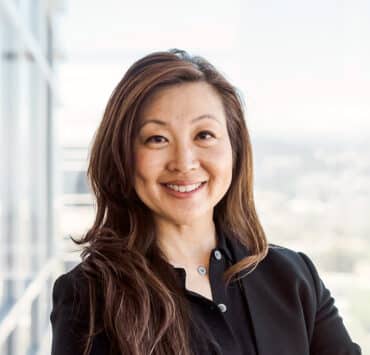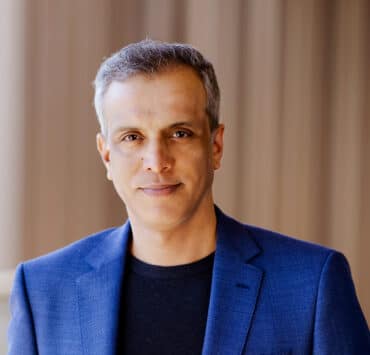|
Getting your Trinity Audio player ready...
|
After a high-pressure call that included Twilio’s general counsel, CEO, and CFO, Nicholas Murray received another call. It was then-GC Karyn Smith, and what she told Murray would fundamentally reshape his thoughts about the future.
“Employment lawyers, given our path, don’t typically go on to be general counsel,” Murray explains. “But Karyn called me and said, ‘You know that you can be a general counsel someday, right?’ It kind of blew me away. I really took a step back and realized that a lot of people from underrepresented backgrounds think they might not be meant for more because they’ve never seen someone that looks like them do it before.”
That was a year ago, and while Murray isn’t taking any active runs at the GC role at present, Twilio’s senior director, assistant general counsel, and global head of employment has continued to seek out new experiences while strengthening the company’s already extensive commitment to diversity, equity, and inclusion (DEI).
Murray knows a thing or two about the importance of making people feel welcome, appreciated, and celebrated. The lawyer’s father is the son of an Indigenous American who was adopted by a white family, and his mother’s family emigrated from Italy. Murray also knew he was gay while growing up in a tiny town in northern Nevada, an isolating experience in an already isolated location.
Those experiences influenced Murray’s career trajectory. Impassioned by the people he saw fighting for others on television, he set out for law school—but at a significant disadvantage.
“I was one of the only people in my pretty large class who didn’t have a lawyer in the family or know any lawyers growing up,” Murray remembers. ”I know that it took a lot of very hard work and some extreme luck to get where I am. I’ve gotten support from some amazing people, and I want to be able to do the same.” At the same time, Murray makes one thing clear: “I don’t pretend that others haven’t had more difficult lives.”
Murray isn’t just a great employment lawyer; he’s a culture builder at Twilio. Following the murder of George Floyd in 2020, Murray worked with the organization to help establish Twilio as an anti-racist and, more globally, an anti-oppression company. He explains that Twilio has created a structure and architecture around these pillars and is driven by executives who truly understand that being an anti-racist organization is not a one-and-done effort.
“It took me time to realize that the things I am instinctually and naturally skilled at are exactly what’s needed in an in-house lawyer.”
Nicholas Murray
“What I love about my job is that I’ve been able to work closely with our chief diversity officer and our chief people officer to continue building on these principles,” Murray explains. “I’m incredibly motivated to investigate and advise on issues that impact underrepresented people. That effort starts with our CEO Jeff Lawson, who has created a culture here that impacts people in a way that it just doesn’t at other companies.”
When it comes to his day-to-day responsibilities, Murray admits that he’s occasionally referred to as “Captain No Fun” because of the approach he takes with issues such as compensation, conflicts of interest, pay equity, and other employment matters.
“I’m just really passionate about issues that impact people at such a direct level,” Murray says. “It’s been a through line of my career. And I think I’ve been able to build that passion into the DNA of Twilio. Every tech company loves to put their values on their website, but what sets us apart and keeps me excited is that everyone from our CEO down is focused on living those values in everything that we do. I wish it didn’t set us apart, but doing the right thing is really a differentiator for us.”
Doing the right thing became an incredibly gray concept during the COVID-19 era. Murray says this was likely the most challenging period that employment lawyers have ever faced, and that they worked around-the-clock to adapt to shifting guidelines and regulations and try to craft consistent protocol while also respecting drastically different employee expectations across the globe.
“I wish it didn’t set us apart, but doing the right thing is really a differentiator for us.”
Nicholas Murray
But the experience further emboldened Murray’s confidence in his in-house skill set. That is significant because of just how committed he was to practicing at a law firm earlier in his career. “It took me time to realize that the things I am instinctually and naturally skilled at are exactly what’s needed in an in-house lawyer,” Murray reflects. “It felt like I was able to bring more of my strengths instead of trying to adapt, and this kind of work just feels right to me.”
For now, Murray works to connect the dots for those outside the legal department, bring clarity where it’s needed most, and embolden Twilio to lead the way when it comes to DEI and living its values.
“There continue to be structural barriers,” Murray says. “But I hope people will find role models and really examine how they got to where they are. I truly believe you can get there too. And whatever I do, I hope people can see from my example that they can really achieve their dreams.”
America as Two Different Worlds
Nicholas Murray says he was greatly moved by author David Treuer’s piece in the New York Times entitled “Adrift Between My Parents’ Two Americas,” a recounting of what it’s like to grow up with both Native American and European heritage in the US. Murray has both an Indigenous American and Italian heritage, and says his own identity has been greatly shaped by the two competing narratives of what the idea of America can mean from those perspectives.
For his mother’s Italian side, America brought the promise and fortune of a new world. But it was different for his father’s Indigenous American family: Murray’s own grandfather was adopted by a white family and essentially cut off from his culture, a practice that was outlawed in the 1970s but is currently before the US Supreme Court. America, in many ways, is a wedge used to cut off those who were here prior to European emigration from their roots.
“A lot of us have to learn to navigate what it means to hold both of those identities in your hand at the same time,” Murray says. “I think it’s why I’m so committed to helping those from underrepresented backgrounds.”


